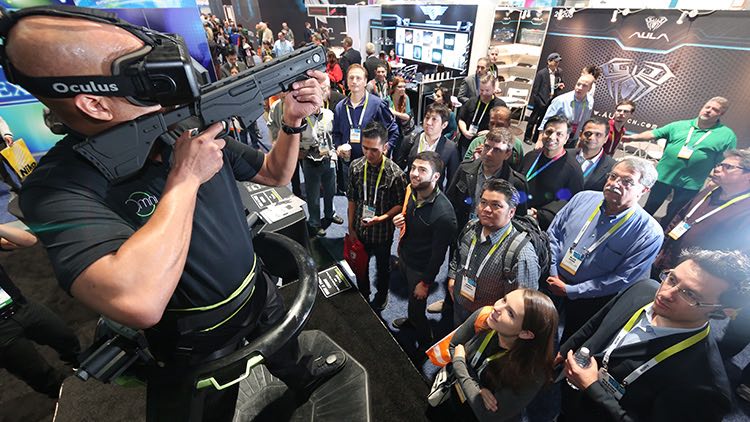Analyst: Best Buy Oculus Demo Shutdown ‘Doesn’t Bode Well’

The smarter way to stay on top of broadcasting and cable industry. Sign up below
You are now subscribed
Your newsletter sign-up was successful
After news broke earlier this week that Facebook was shuttering its Oculus virtual reality demo set-ups at 200-odd Best Buy stores, one analyst saw it as a sign that VR content problems are standing in the way of success for the VR headset.
“This news is not surprising as there’s been a lot of feedback regarding how difficult and unintuitive Oculus’s demos have been,” said Stephanie Llamas, VP of research and product strategy at SuperData Research. “Many were by appointment only and we have heard consumers say some assistants were not knowledgeable enough to give them a proper experience.”
And the VR content problem, according to Llamas, appears to be something only Facebook and Oculus is facing right now. She said feedback for demos for the Samsung Gear VR, PlayStation VR and HTC Vive “have all been positive,” and the sales of other standalone VR headsets has borne this out. Oculus shipped an estimated 243,00 devices in 2016, compared to an estimated 745,000 PlayStation VRs and 420,000 HTC Vives.
“This news does not bode well for 2017, as we estimate Oculus to sell only 496,000 units this year,” Llamas said.
For its part, Facebook is looking at the long game for its VR business. During a call with analysts Feb. 1, discussing the company’s quarterly results, Facebook CEO Mark Zuckerberg compared the slow growth of VR to the nascent days of smartphones.
“The analogy that I always use is the first smartphones came out in 2003, right, the BlackBerry and Palm Treo, and it took 10 years to get to 1 billion units. I don't know if there was something that folks could have done to make that happen fast, but I think that was pretty good,” he said. “If we can be on a similar trajectory of anywhere near 10 years for VR and AR, then I would feel very good about that, and I feel like we're making the right bets now to plant the seeds for that.”
Meanwhile, in a separate report, ABI Research Feb. 9 shared its forecast for standalone VR headsets, predicting combined shipments of 110 million by 2021, with the research firm suggesting that while mobile VR sets—like the Gear VR and Google Daydream—have helped the technology get off the ground, it’s the standalone VR headset market that will eventually dominate.
The smarter way to stay on top of broadcasting and cable industry. Sign up below
“Mobile VR built a solid foundation for the overall market over the past few years, but standalone VR devices will eventually drive it,” said Eric Abbruzzese, senior analyst for ABI Research. “Low cost and high accessibility has, and will continue to, drive VR adoption with mobile devices and associated VR accessories. However, a trend toward standalone devices is surfacing, and will continue over the next five years until mobile and standalone VR devices see parity in terms of shipments.”
ABI Research puts the overall VR market at $64 billion by 2021.
